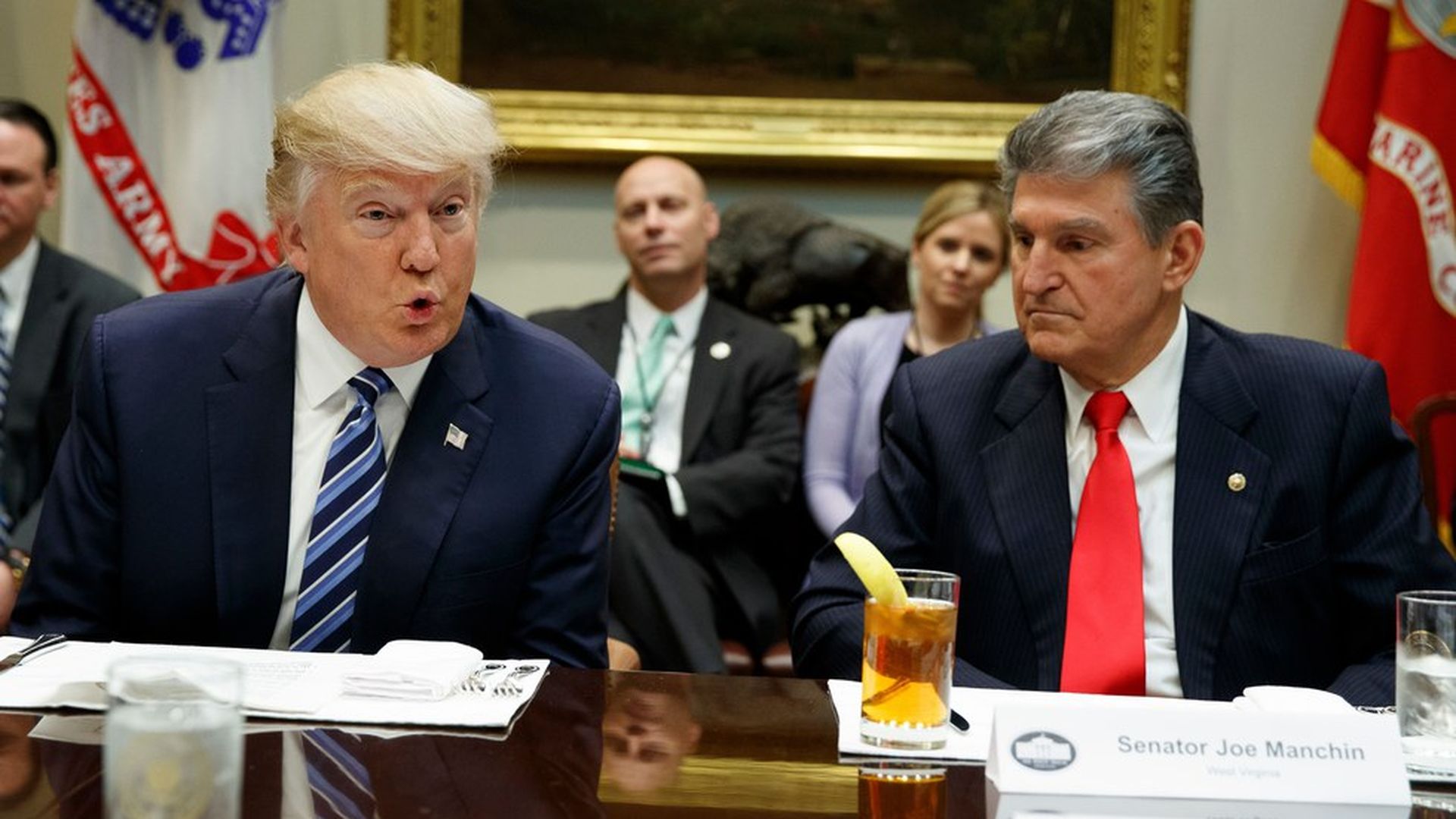Sep 14, 2017
No, Trump isn’t trying to do bipartisan tax reform
Add Axios as your preferred source to
see more of our stories on Google.

The White House sees Joe Manchin as one of the most likely Democrats to be open to tax reform. Photo: Evan Vucci / AP
